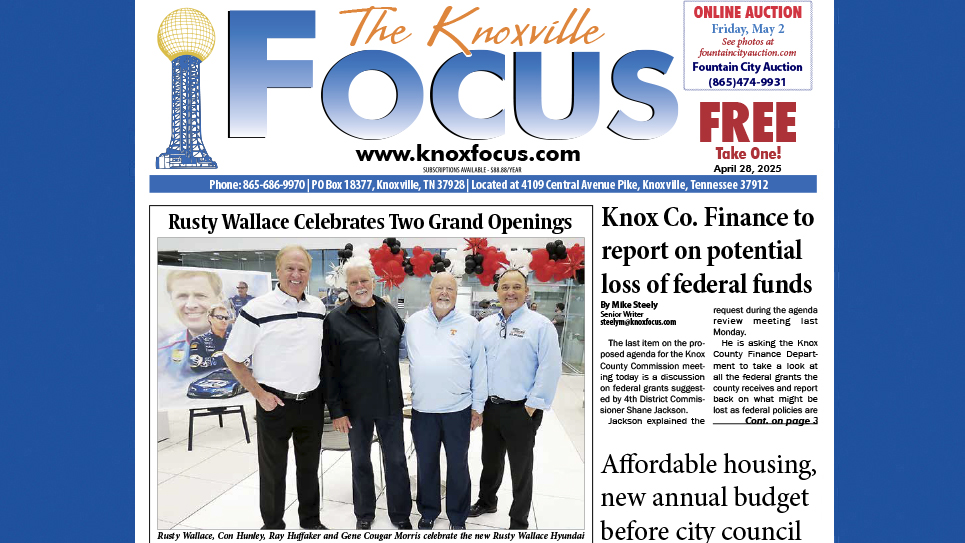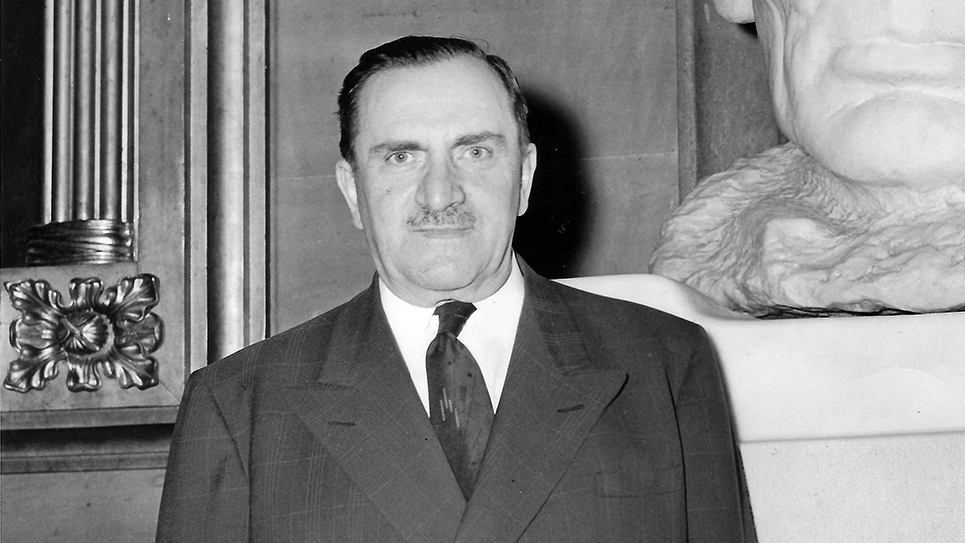A Triumphant Trip
By Tom Mattingly
When Tennessee squared off against New York University on Dec. 5, 1931, at Yankee Stadium, it may not have been an officially recognized bowl game (the NCAA doesn’t count this and other Depression-era bowl games in all-time records), but it was a coming out party for the Vol football program and senior lineman Herman Michael Hickman, Jr.
The Vols were 9-0 heading to Kentucky for the season finale on Thanksgiving Day, Nov. 26, with a Rose Bowl bid seemingly in hand, but the Wildcats spoiled Tennessee’s plans with a 6-6 tie, a deadlock that sent Tulane to Pasadena instead.
So, the consolation prize was a trip to New York. New York City Mayor Jimmy Walker had hurriedly set up the game to raise money for the relief of the unemployed.
The Vols had only played outside the South twice before then, losing at Dartmouth 14-3 in 1921 and 41-0 against Army at West Point in 1923.
The New York trip was better by far, as TIME Magazine’s Dec. 14 issue observed.
“It was a triumphant trip. Small town citizens—especially firemen in full uniform—cheered the team at station after station. Liveliest demonstration occurred at Bristol, whose main street is the State line between Virginia and Tennessee. Citizens escorted Tennessee’s most famed back, Eugene Tucker (“Wild Bull,” “Bristol Blizzard,” “Black Knight”) McEver across the platform so he could exchange a word with his parents, then carried him back to the train. When the team arrived in Manhattan, two stowaways were found in the baggage car.”
The Vols won 13-0, as Beattie Feathers had a 65-yard run for a score, while Deke Brackett had a 75-yard punt return for another, both in the second period. The Violets outgained the Vols 248 to 122, but 90 yards in penalties (against Tennessee’s 5) helped the Vol defense make the plays when needed.
“The Tennessee defense—headed by Herculean Herman Hickman—held N. Y. U., once at two inches, later at five yards, from the Tennessee goal line,” the TIME story noted.
That day, Hickman’s performance earned him a last-second spot on Grantland Rice’s All-American team, making him the team’s third Vol All-American selection (after McEver and Bobby Dodd).
Hickman, born in Johnson City, was an intriguing story. He came to the Vols weighing 203 pounds, but was 225 as a senior, heavy for a lineman in those days.
In “Tennessee: Football’s Greatest Dynasty” (1962), News-Sentinel sports editor Tom Siler reported that when NYU got to the Vol 5, coach Chick Meehan instructed his quarterback Ernie Concannon to run the plays at Hickman, whom he termed the “fat boy.”
What happened was that four plays later, the Violets were at the 23.
After the game, Meehan asked Concannon if Hickman was really that tough.
“I don’t know, and I don’t want to find out,” he answered. “All I know is he called me a d— Yankee, and I pretended I didn’t hear him.”
University of Tennessee historians James Riley Montgomery, Stanley J. Folmsbee, and Lee Seifert Greene wrote about the other significant impact of the game: “The precision playing and the devastating line work of the Volunteers attracted attention of northern sports writers as the press outside Tennessee began to pay closer attention to events in the state.”
As an added benefit, the city of Knoxville received $18,583 from game proceeds, worth $327,923.99 in 2023, while New York City earned $43,359, worth $765,132.46.
Hickman, who died on April 25, 1958, at age 46, had quite a career after college. He played for the NFL Brooklyn Dodgers from 1932-34. He wrestled professionally as the “Tennessee Terror,” competing in more than 500 matches. He was an assistant coach at Wake Forest, North Carolina, and Army.
He was the head coach at Yale from 1948-51 before becoming a member of the first staff for a new publication called Sports Illustrated. Shortly after he died, the University of Tennessee established a scholarship fund in his memory. In 1959, he was inducted into the College Football Hall of Fame.
He was the first chairman of Sports Illustrated’s Silver Anniversary Awards committee, charged with honoring former players 25 years after their collegiate careers had ended. That caused Hickman a problem, according to a Dec. 24, 1956, SI story announcing that year’s Silver Anniversary Award winners.
“One judge faced—and neatly solved—the problem of his own possible election to the Silver All-America. He was Herman Hickman, All-America from Tennessee in 1931, now Sports Illustrated’s own football commentator and the man who proposed the Silver Anniversary awards.
“The University of Tennessee nominated him in a citation emphatically concluding: ‘He has consistently reflected great credit on the University of Tennessee, on the State of Tennessee and on football in general.’”
The result?
“Herman Hickman struck his name from the lists sent to the other judges. More than one of his fellow judges tried to write him in anyway.”
Had the Vols not played at Yankee Stadium, Grantland Rice might not have seen Herman Hickman play. There’s no telling how things might have played out, for the University of Tennessee… and for Hickman.






